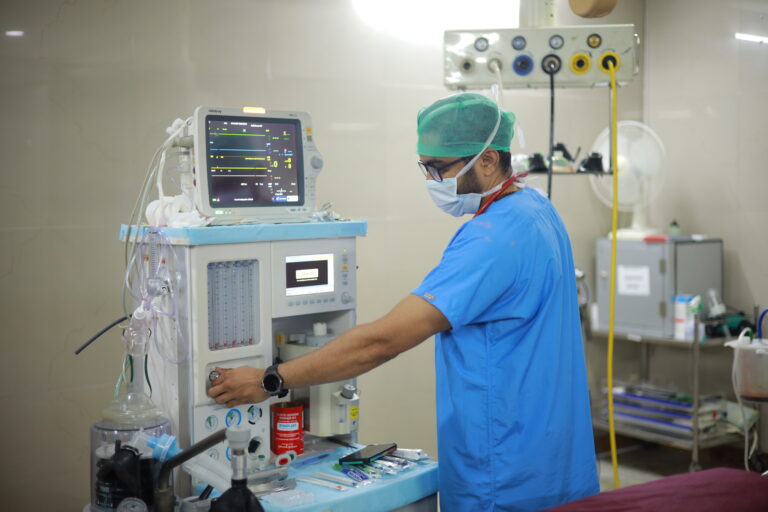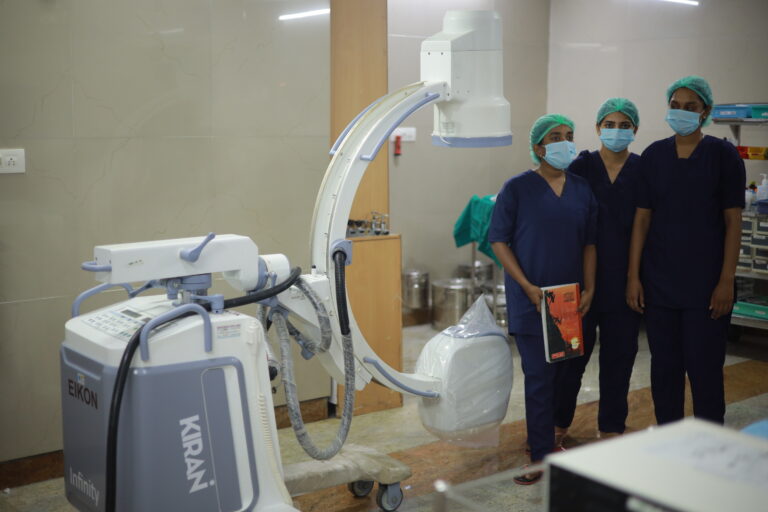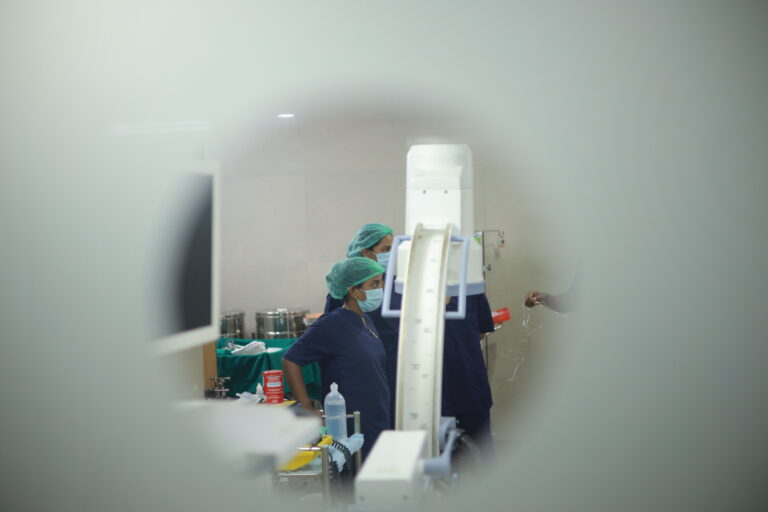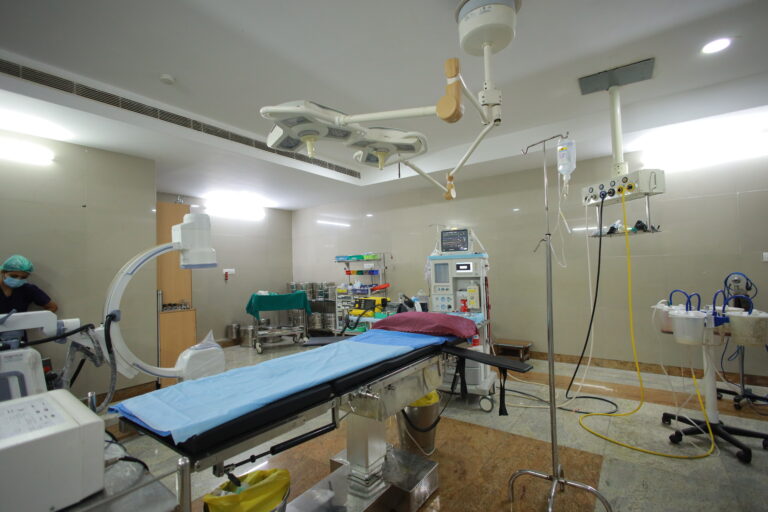ENT-Otorhinolaryngology
- Home
- /
- ENT-Otorhinolaryngology
Meet Our Team
The Vikram Hospitals plays a statewide services includes the Acquired
Dr. K.S Raja ganesh Ms., (ENT)
Senior consultant ENT Surgeon
ENT
The Ear, Nose, and Throat (ENT) Department at Vikram Multispeciality Hospital is dedicated to providing comprehensive and specialized care for disorders related to the head and neck. Our experienced team of ENT specialists, also known as otolaryngologists, is well-equipped to diagnose and treat a broad range of conditions, including hearing loss, sinusitis, throat infections, and facial trauma. We offer advanced diagnostic procedures, including endoscopy and imaging, to ensure accurate assessments. The department also excels in performing surgeries, such as tonsillectomies, septoplasties, and cochlear implants, with a focus on minimally invasive techniques whenever possible. Whether it’s addressing pediatric ear infections, adult hearing issues, or nasal and sinus disorders, our ENT specialists are committed to delivering compassionate and effective care to improve the overall health and well-being of our patients.
SERVICES:
- General ENT Consultations
- Hearing Tests and Audiometry
- Treatment for Ear Infections
- Tonsillectomy and Adenoidectomy
- Endoscopic Sinus Surgery
- Rhinoplasty (Nose Surgery)
- Thyroid and Parathyroid Surgery
- Head and Neck Cancer Screening
- Voice Disorders Evaluation and Treatment
- Swallowing Disorders Management
- Allergy Testing and Immunotherapy
- Cochlear Implantation
- Sleep Apnea Diagnosis and Treatment
- Vertigo and Balance Disorders Evaluation
- Pediatric ENT Services
- Minimally Invasive Surgery for Snoring
- Facial Plastic and Reconstructive Surgery
- Salivary Gland Disorders Management
- Voice and Speech Therapy
- Hearing Aid Consultation and Fitting
Frequently Asked Questions
What does ENT stand for?
ENT stands for “Ear, Nose, and Throat.” It’s a medical specialty that deals with the diagnosis and treatment of various conditions and diseases affecting these areas.
What is the type of ENT?
There are various subspecialties within the field of ENT. Some of the common ones include:
- Otology: Specializes in the ear and hearing disorders.
- Rhinology: Focuses on the nose and sinus-related problems.
- Laryngology: Deals with issues related to the voice box (larynx).
- Head and Neck Surgery: Concentrates on tumors and diseases of the head and neck region.
- Pediatric Otolaryngology: Specializes in ear, nose, and throat problems in children.
What is the treatment of ENT?
The treatment of ENT (Ear, Nose, and Throat) conditions can vary widely depending on the specific problem. Common treatments may include:
- Medications: Such as antibiotics for infections, steroids for inflammation, or allergy medications.
- Surgical Procedures: If necessary, surgery may be performed to address issues like tonsillectomy, sinus surgery, ear tube placement, or removal of tumors.
- Lifestyle Modifications: Lifestyle changes, such as avoiding allergens or irritants, may be recommended to manage chronic conditions.
- Hearing Aids: For hearing loss, hearing aids may be prescribed by an audiologist.
- Speech Therapy: This may be recommended for speech and voice disorders.
- Rehabilitation: Physical therapy or rehabilitation may be needed for certain conditions or injuries.
The specific treatment will depend on your diagnosis and the recommendations of your ENT specialist. It’s important to consult with a healthcare professional for a proper evaluation and treatment plan.






